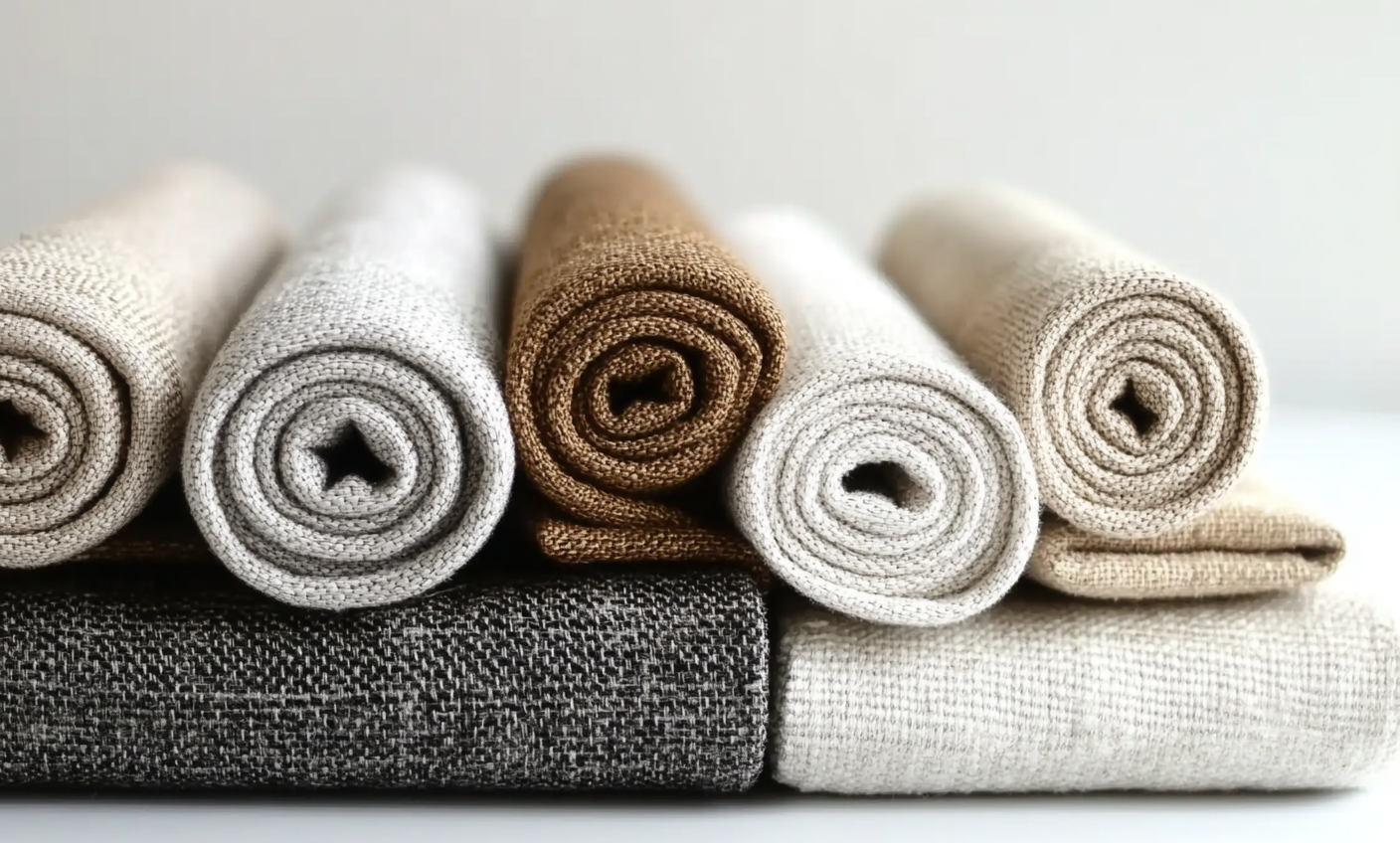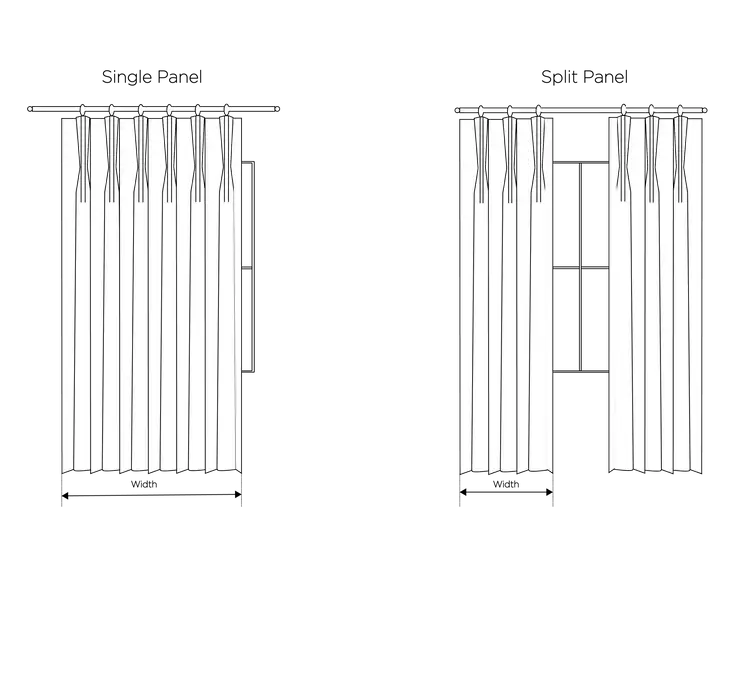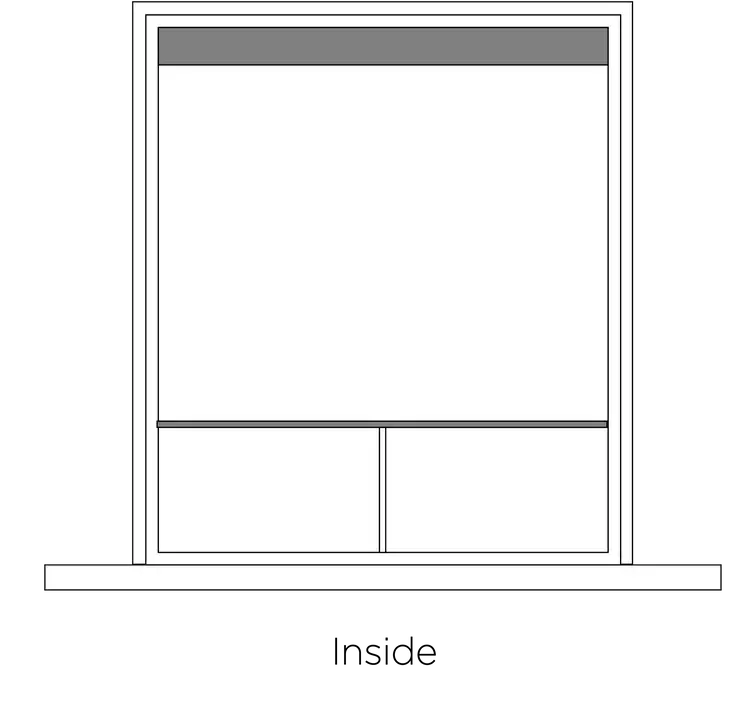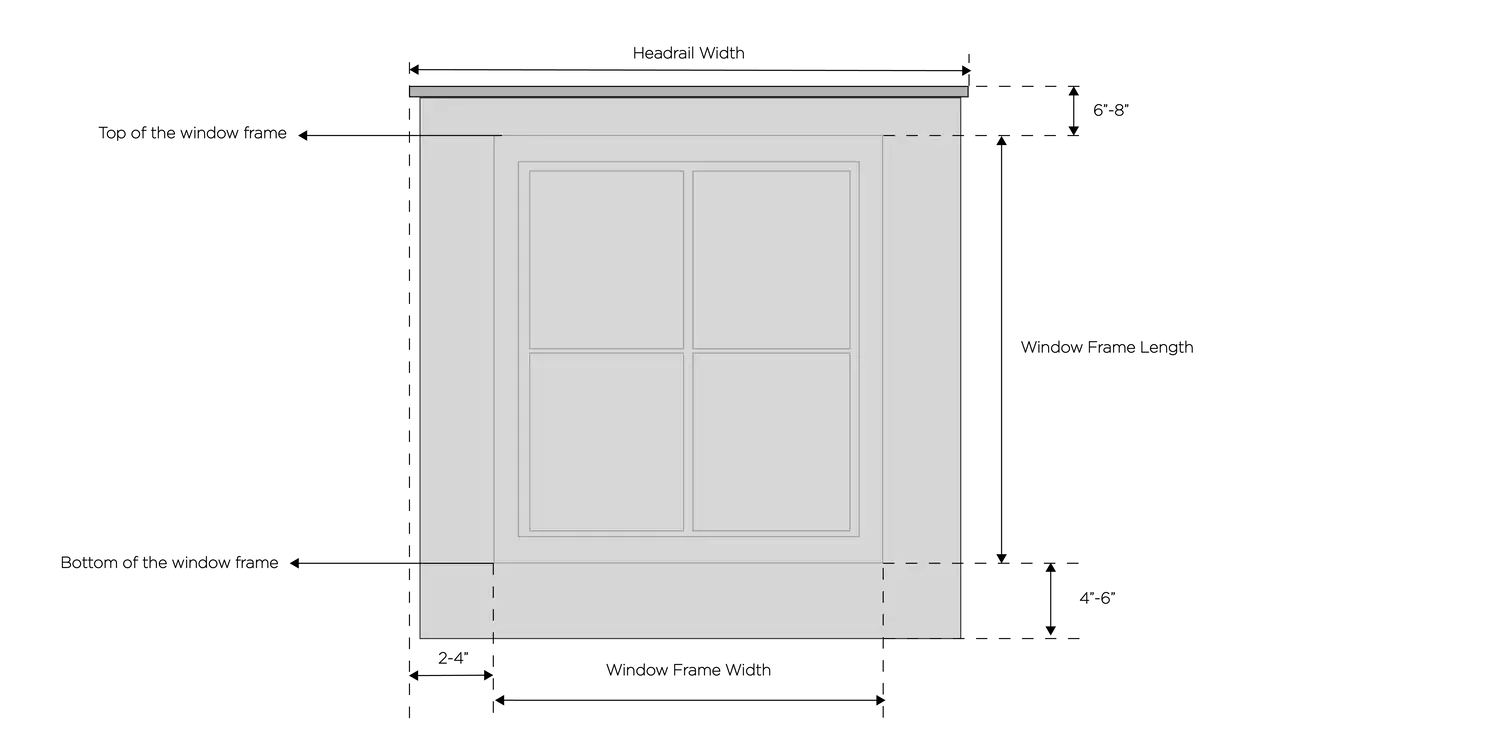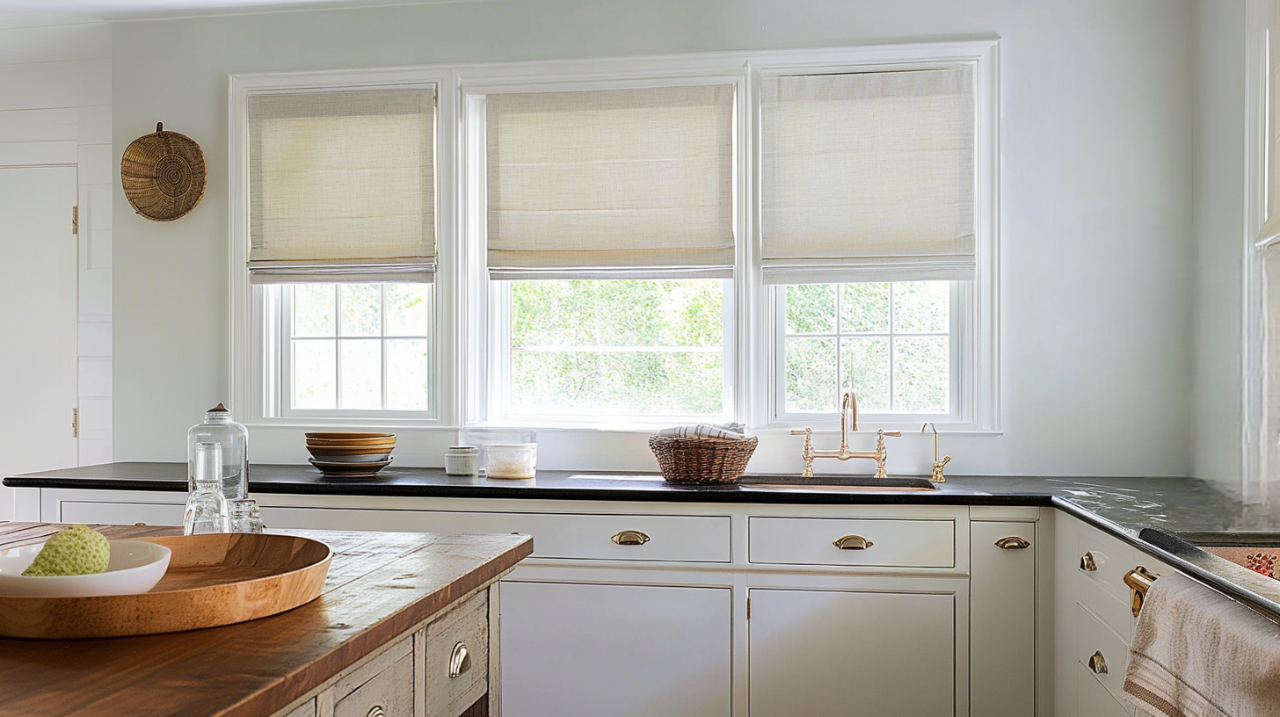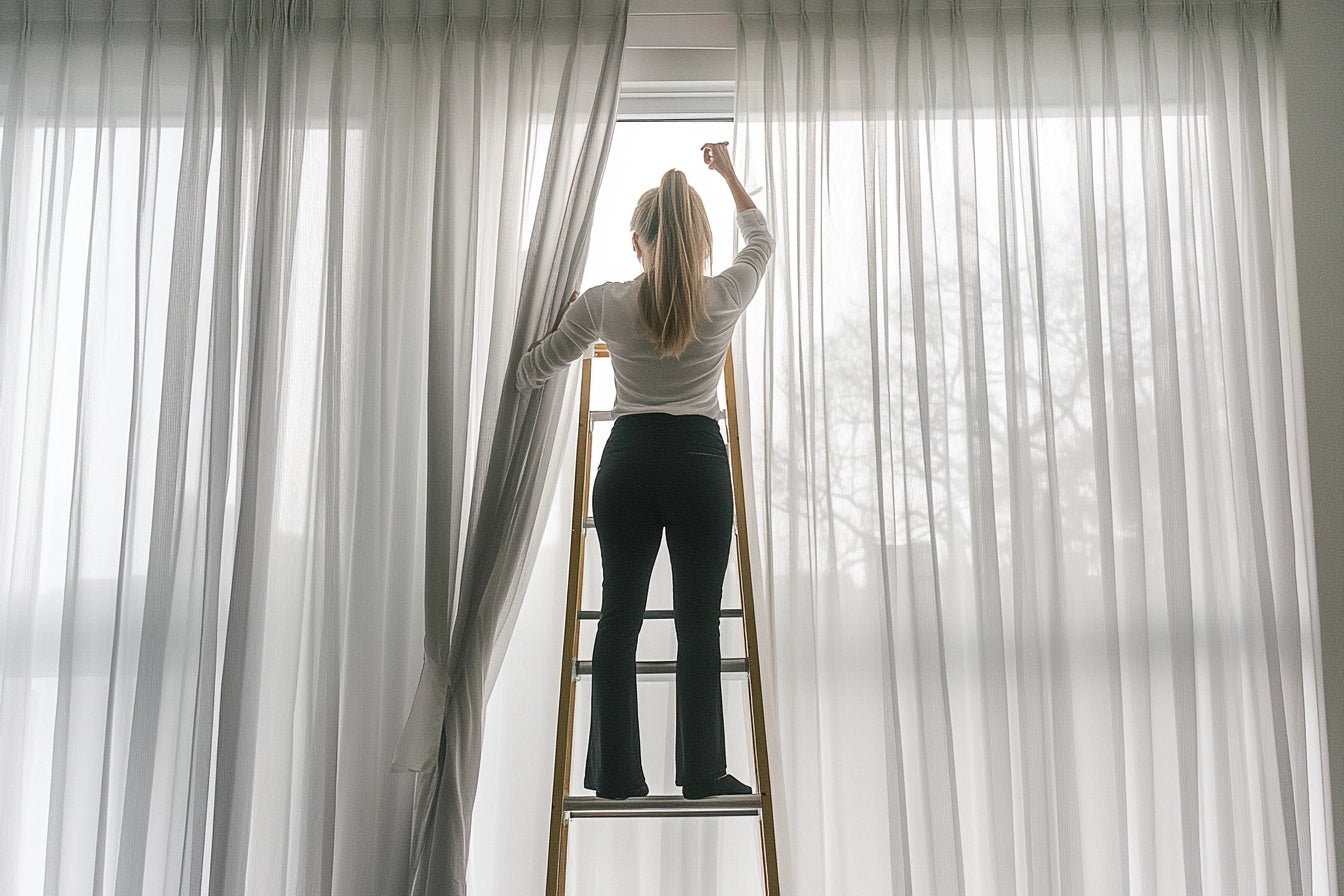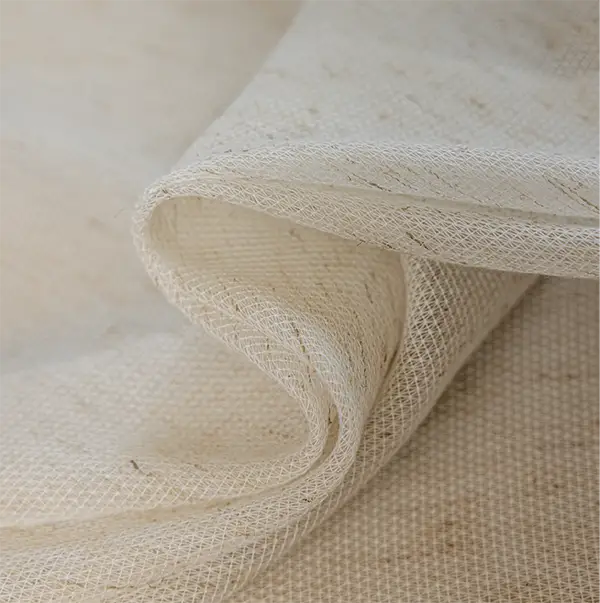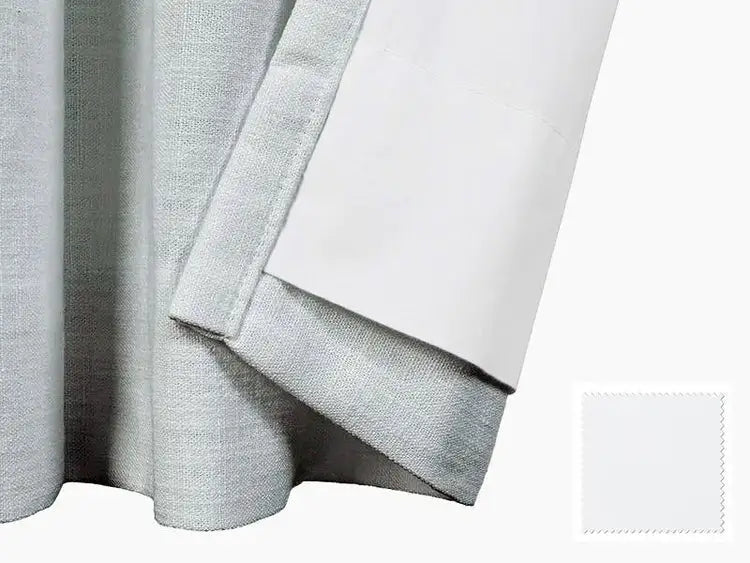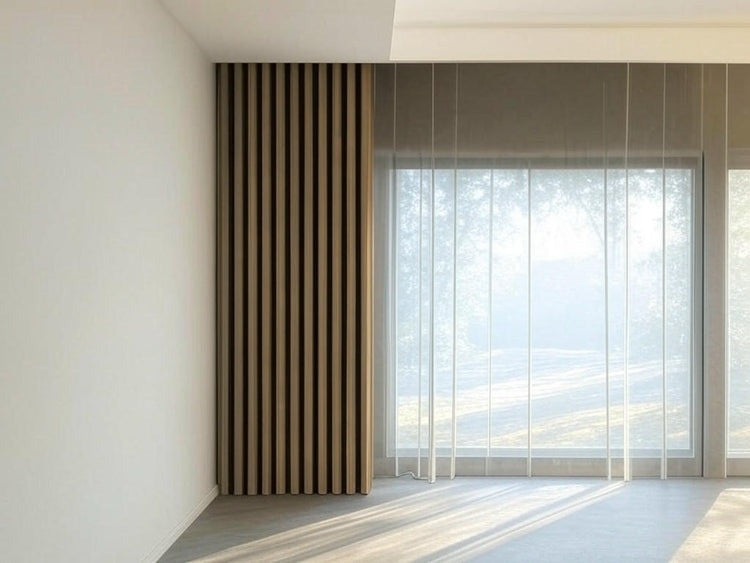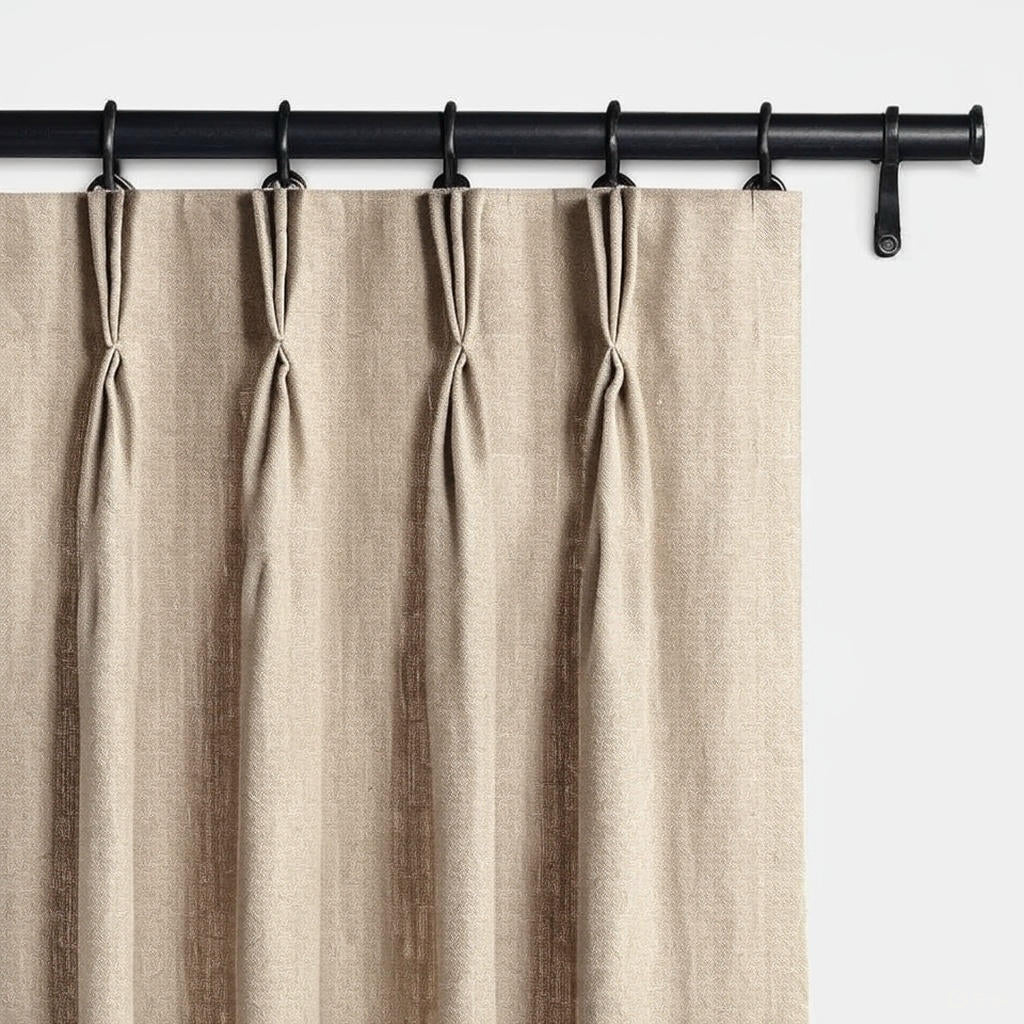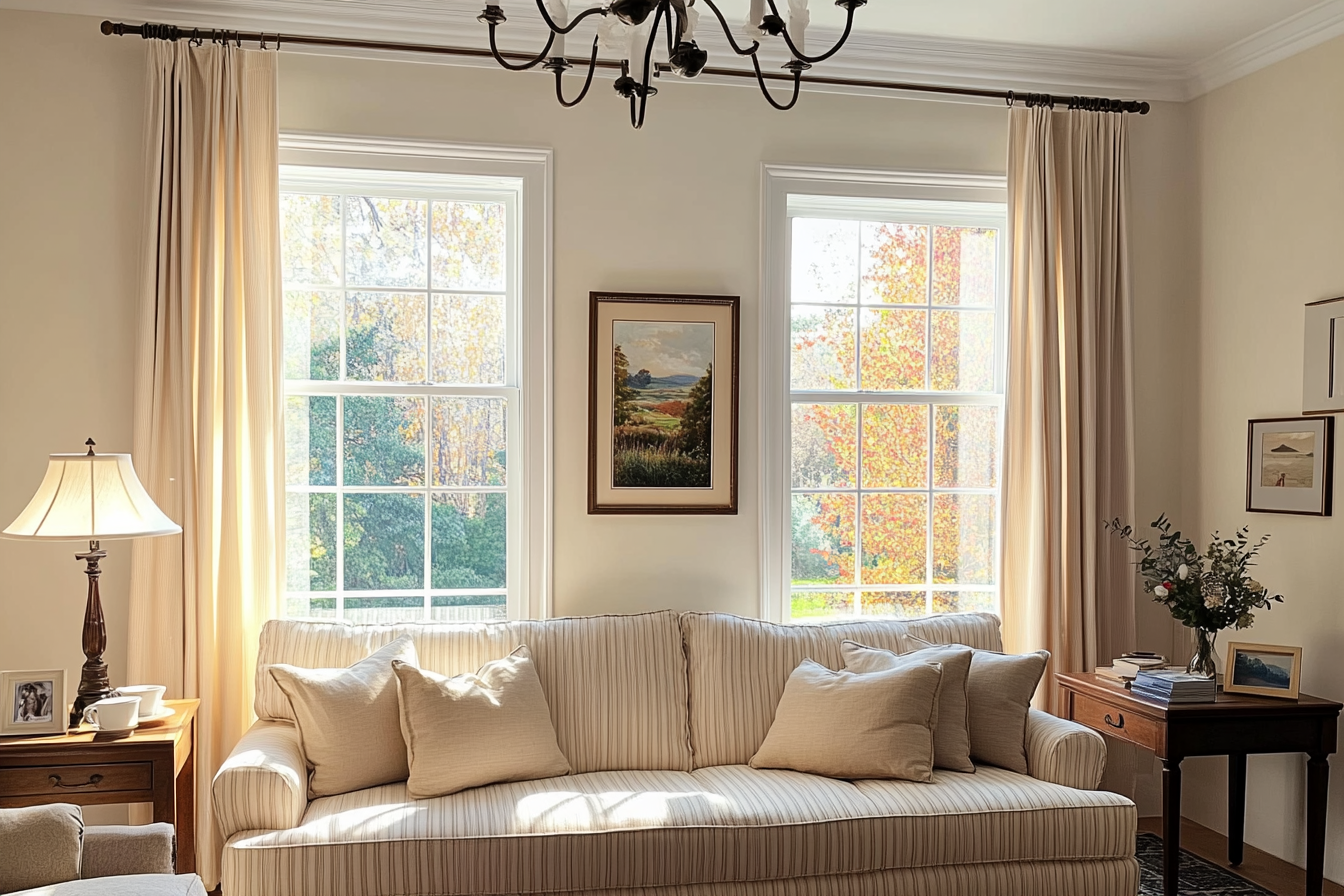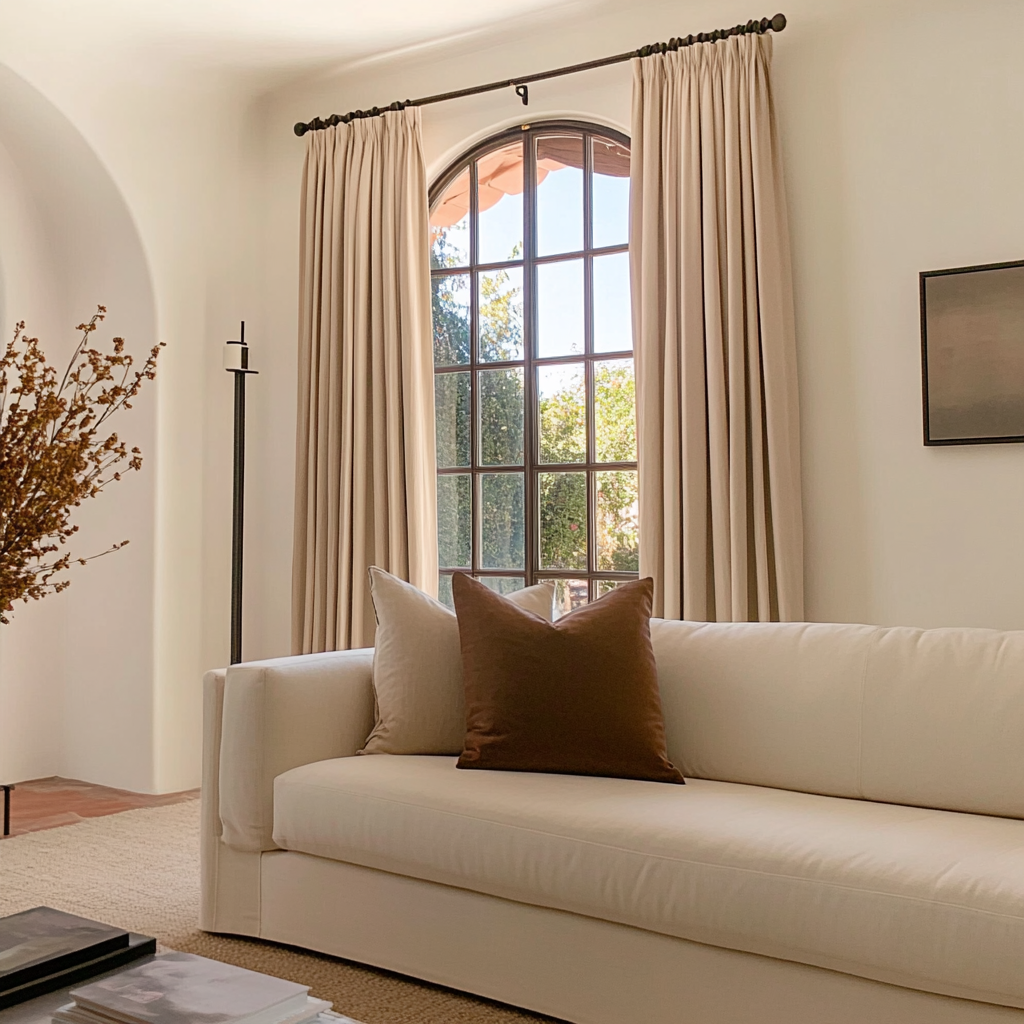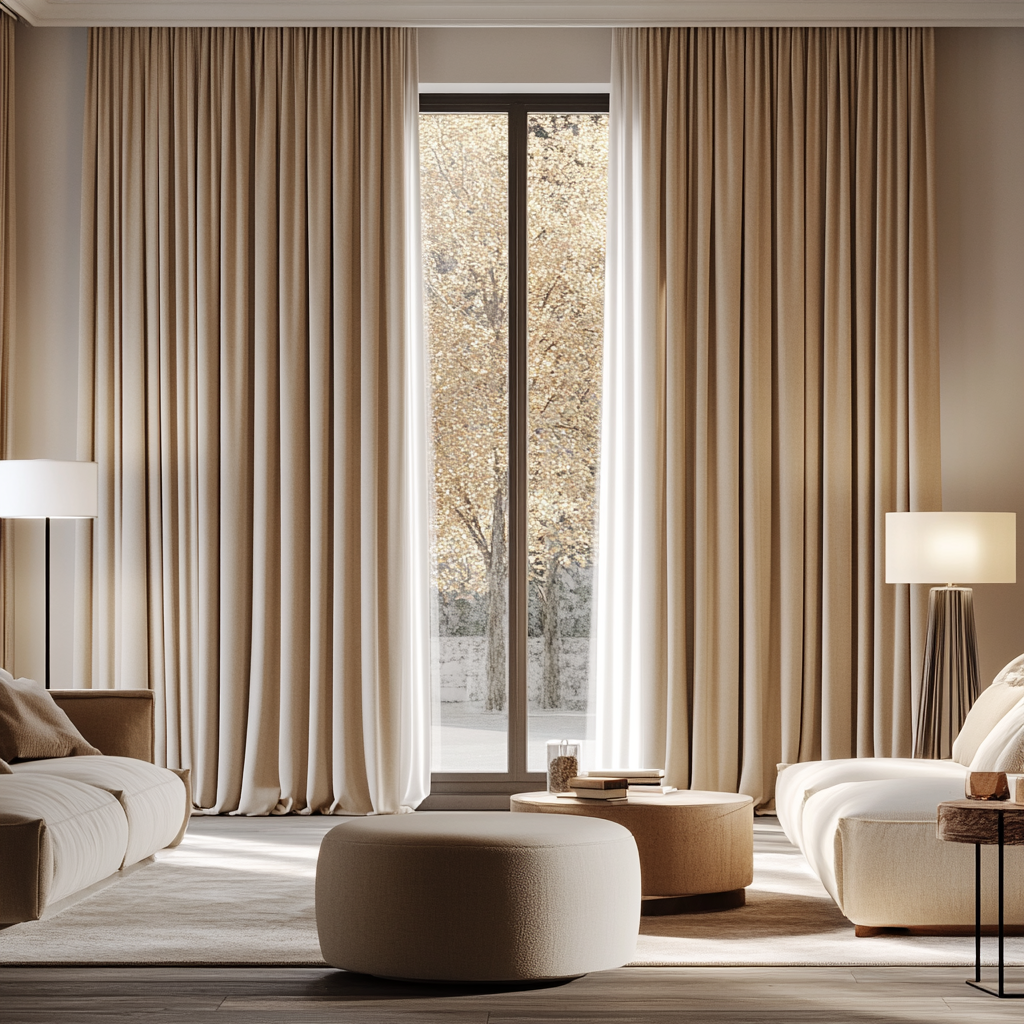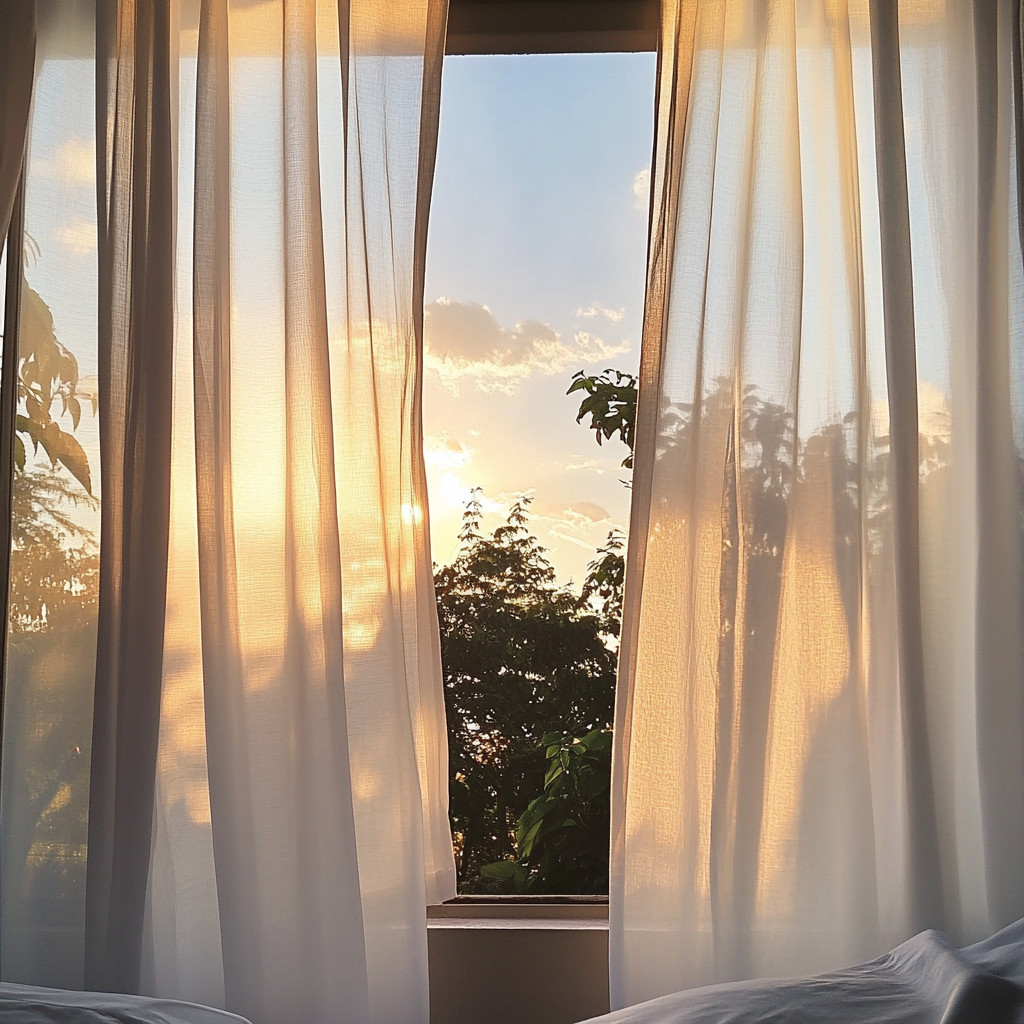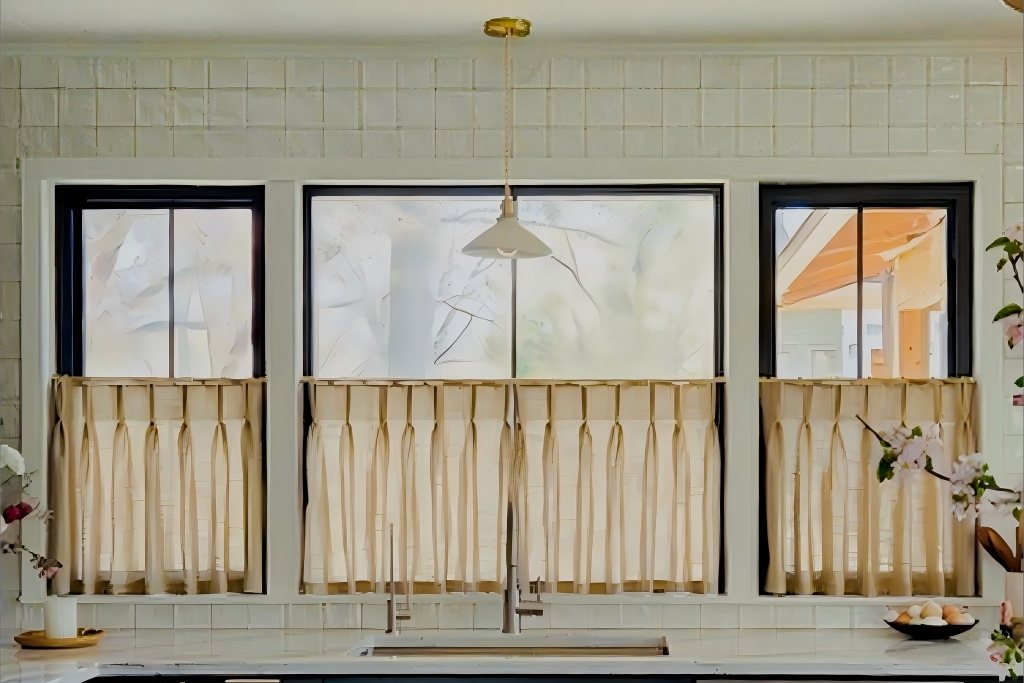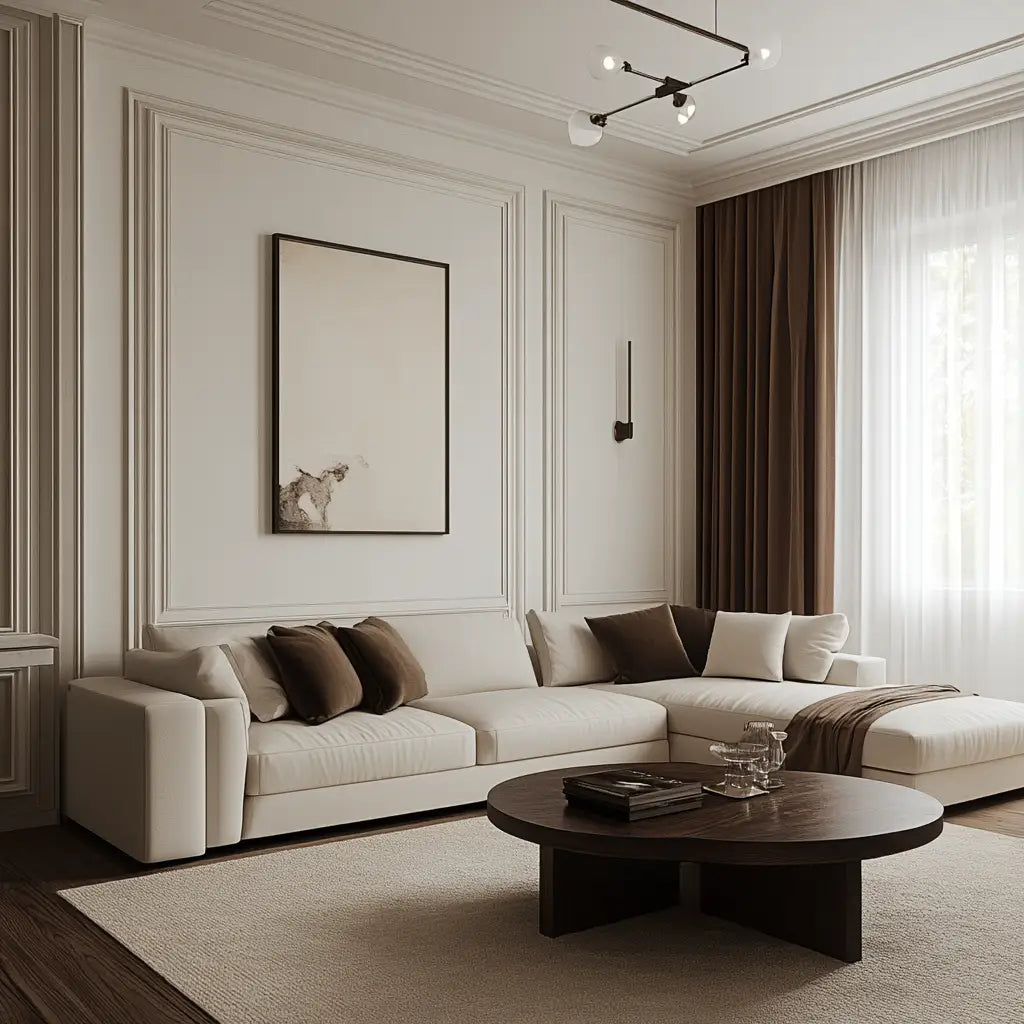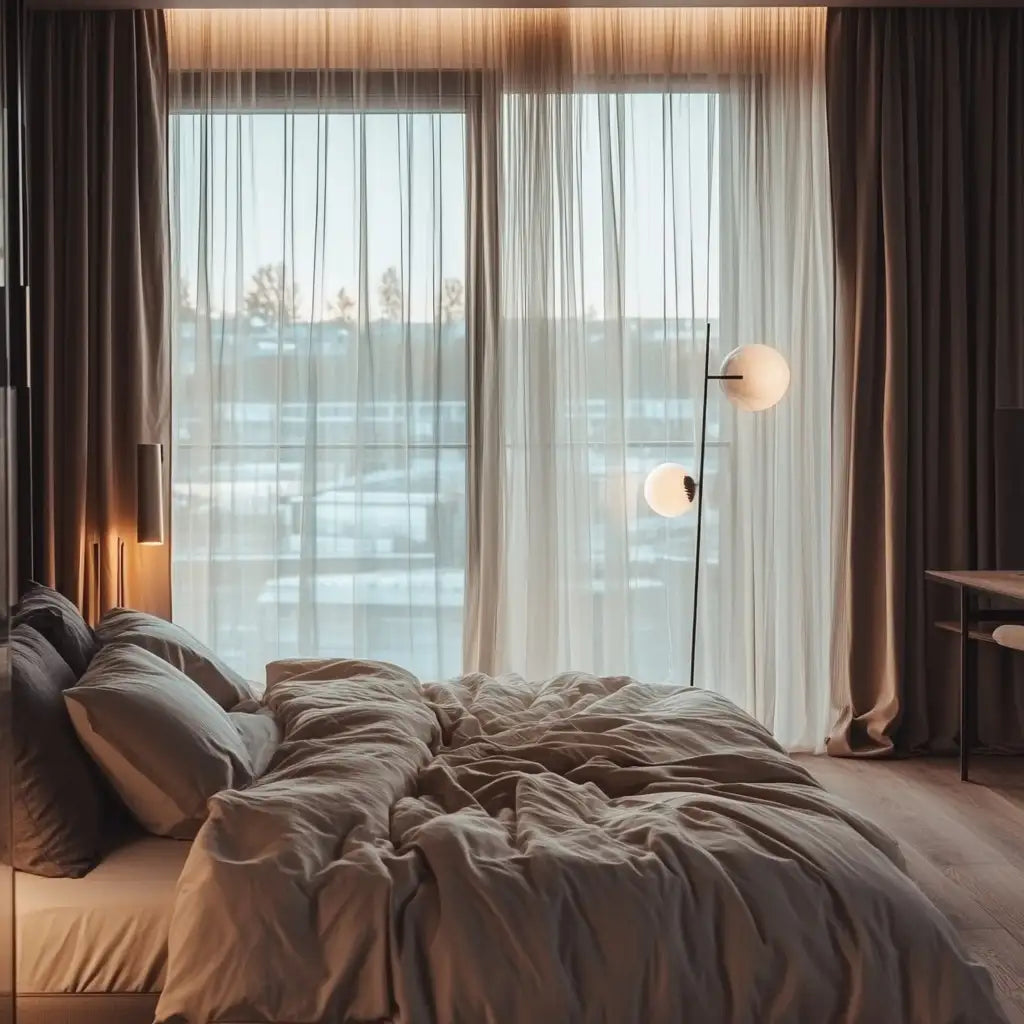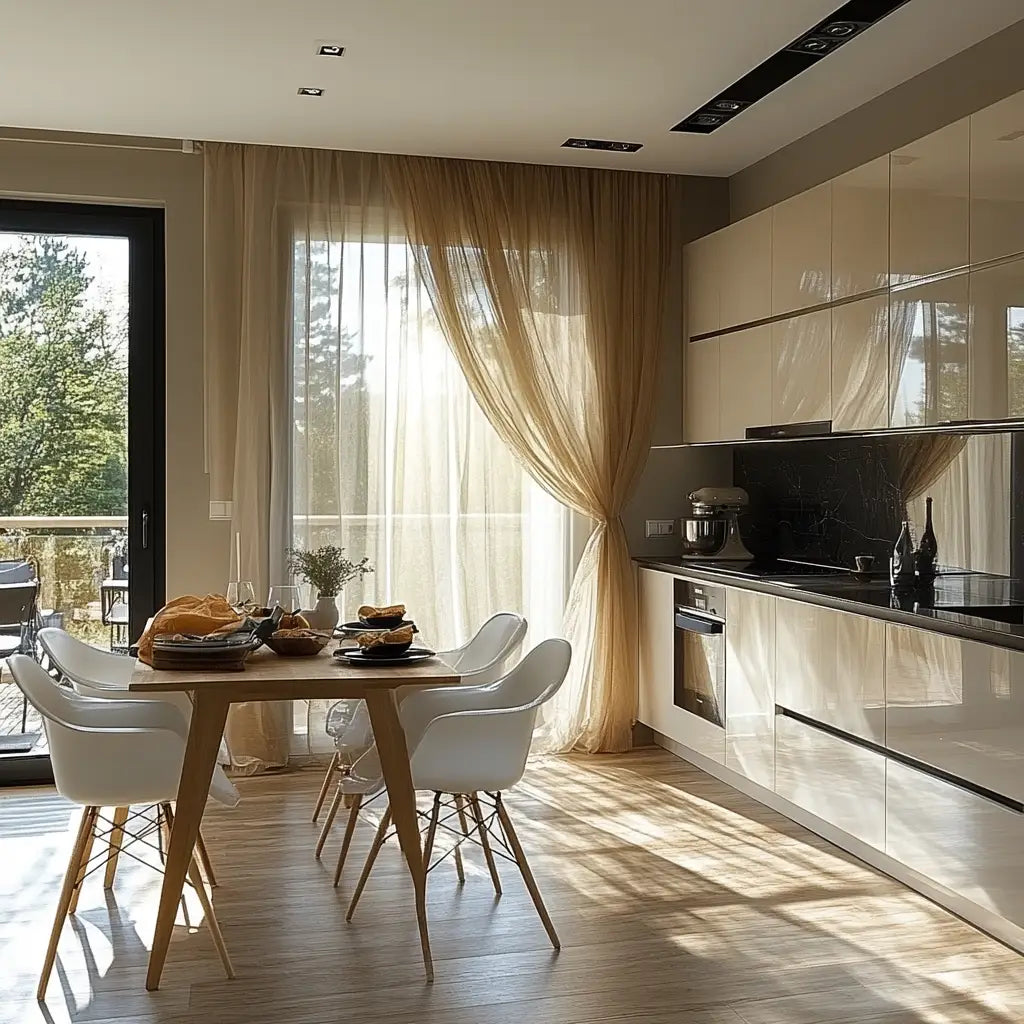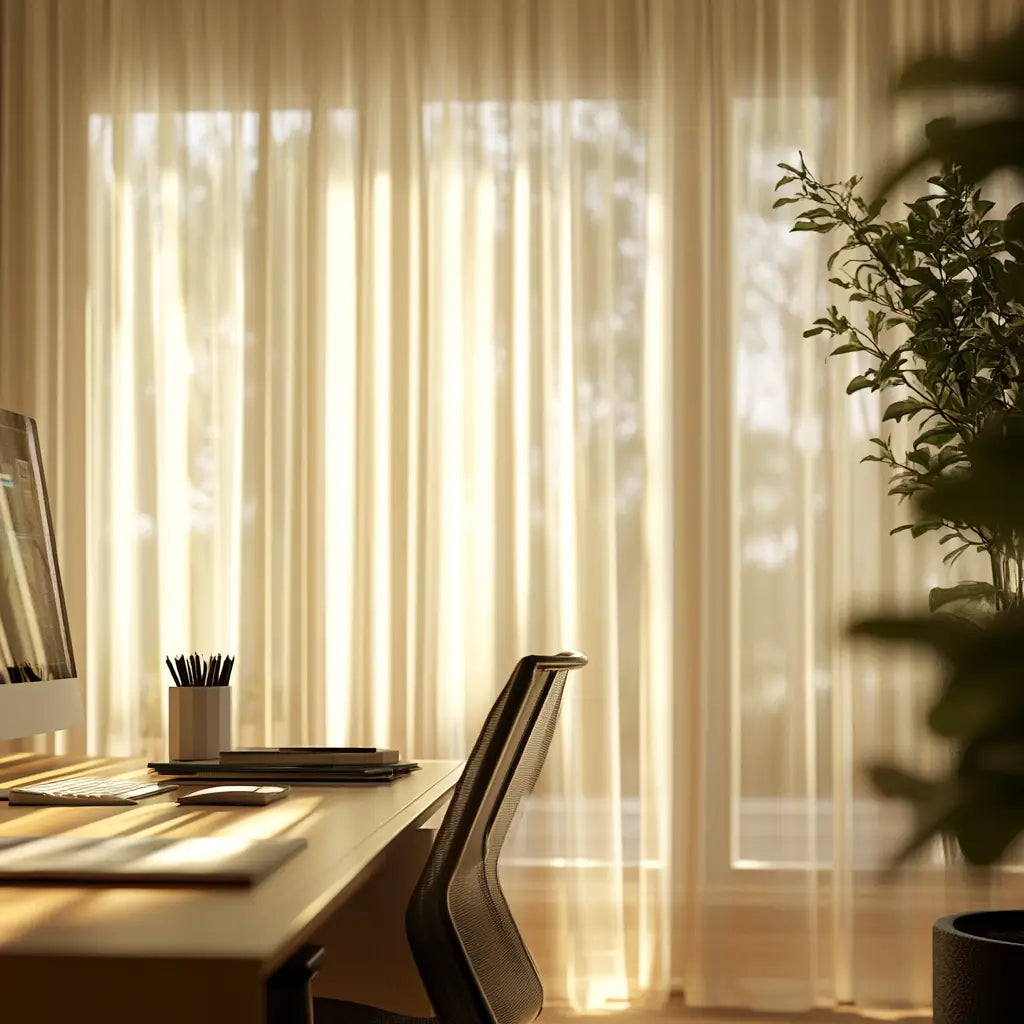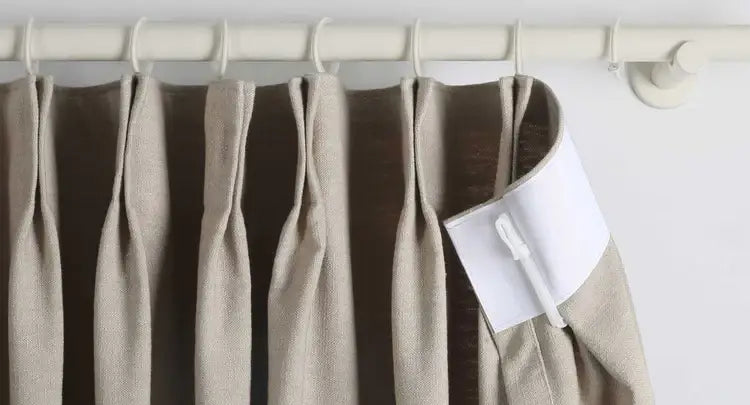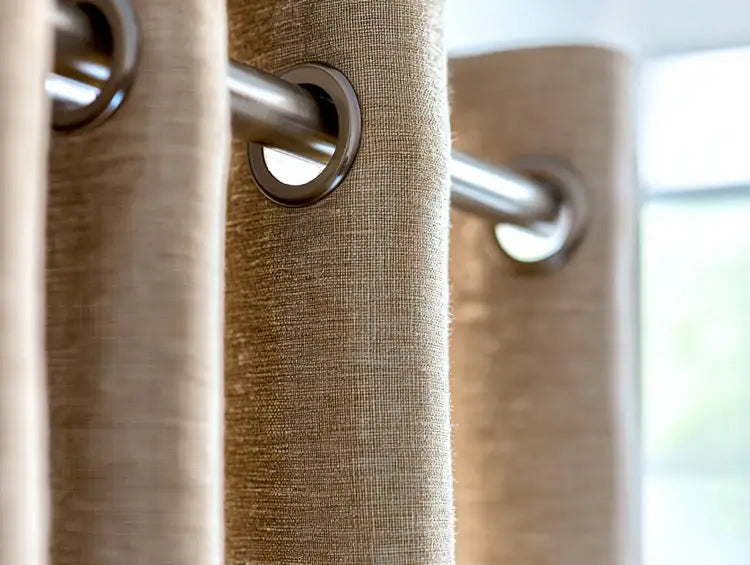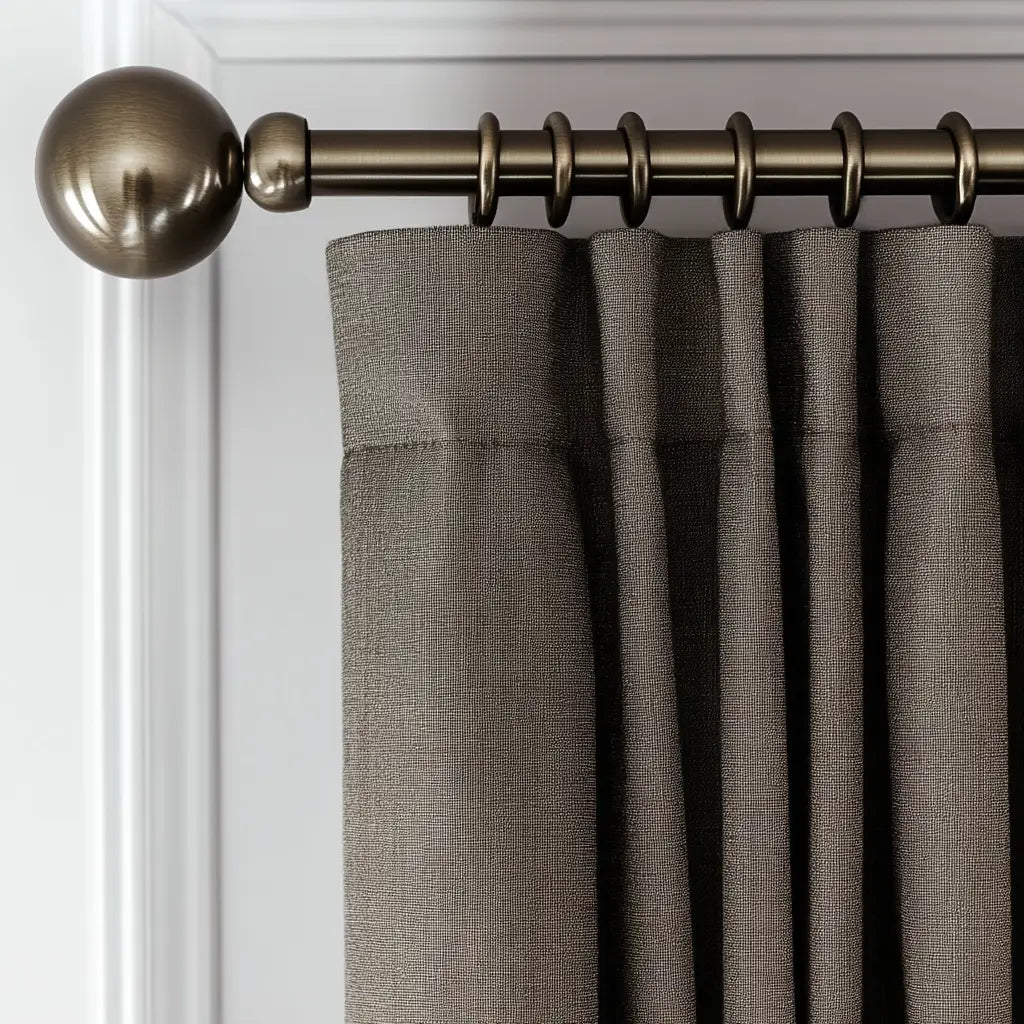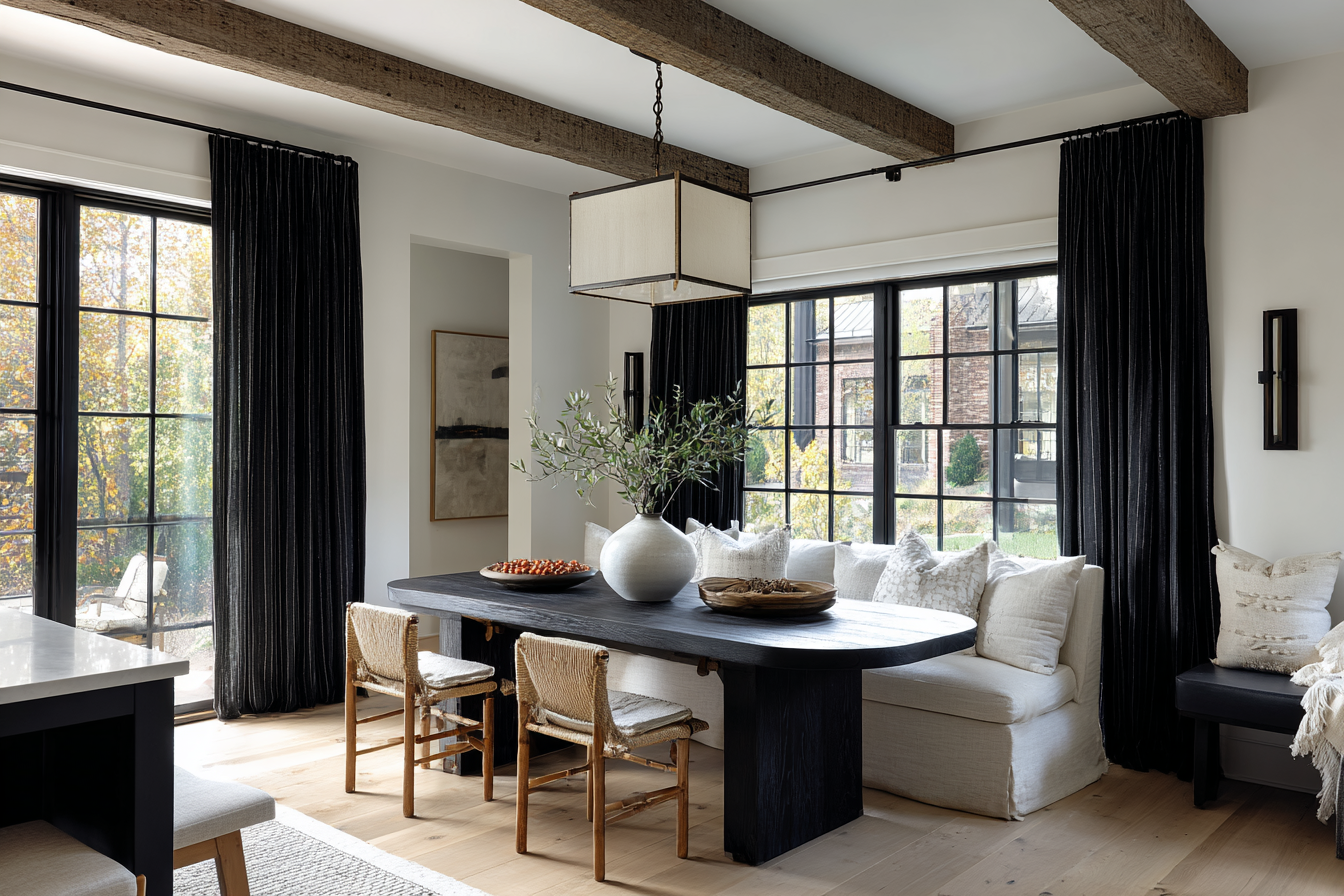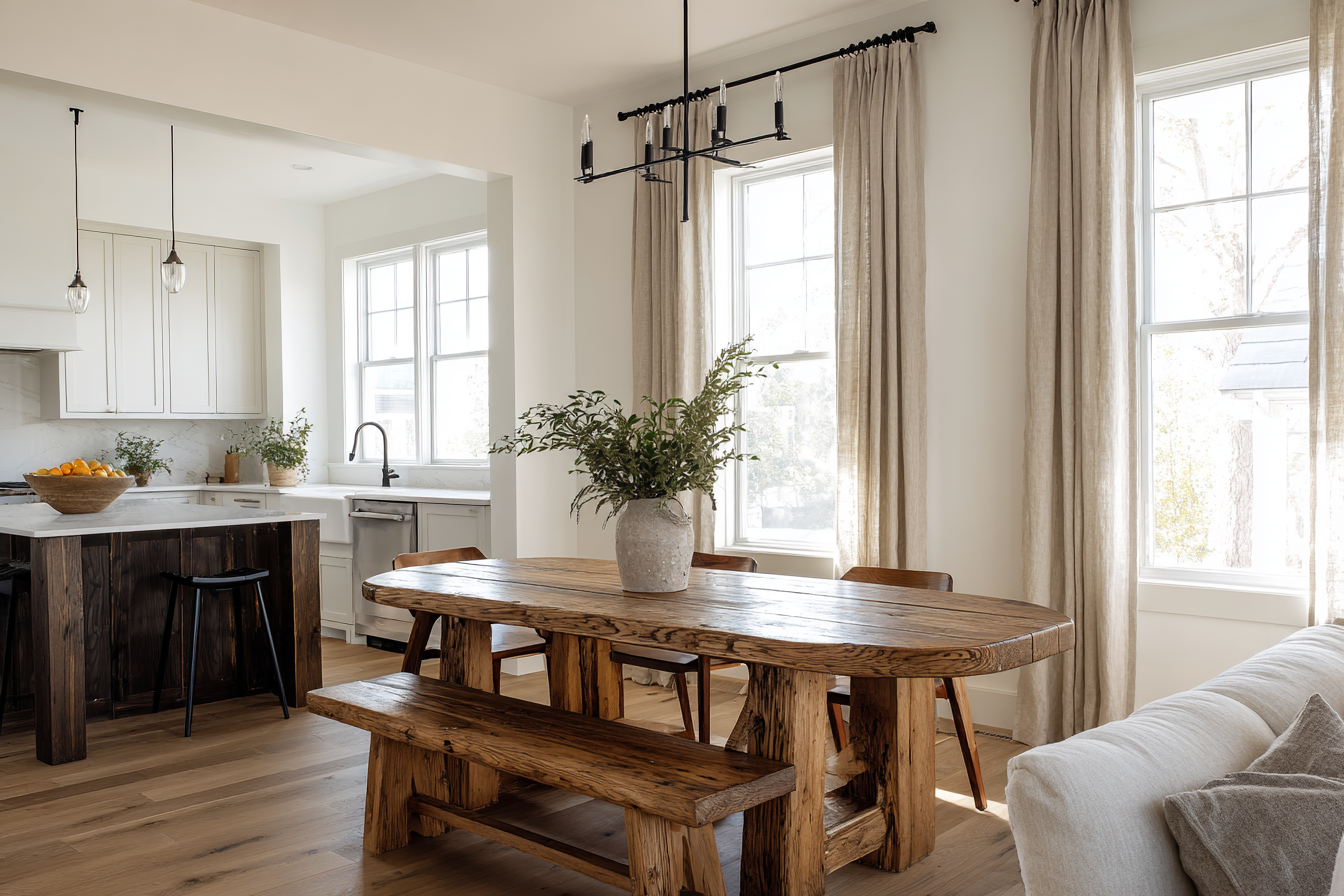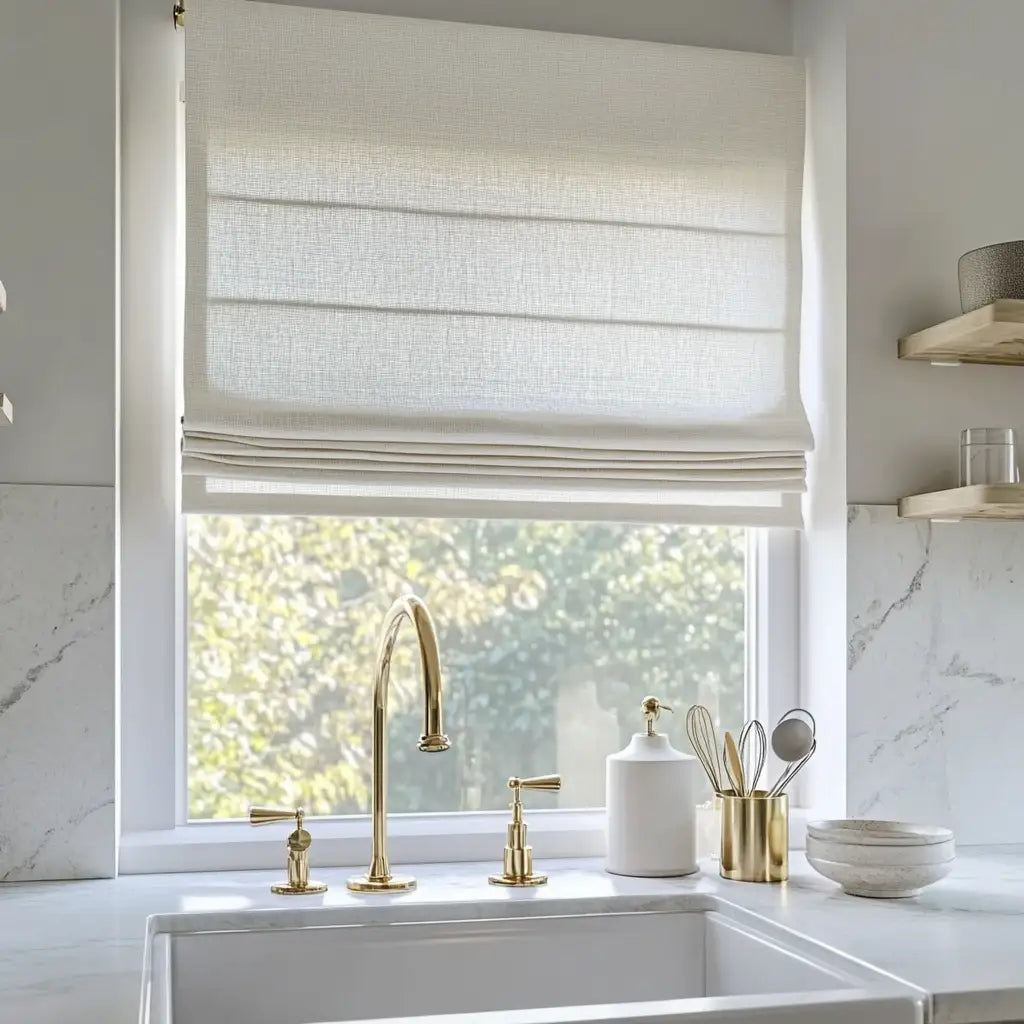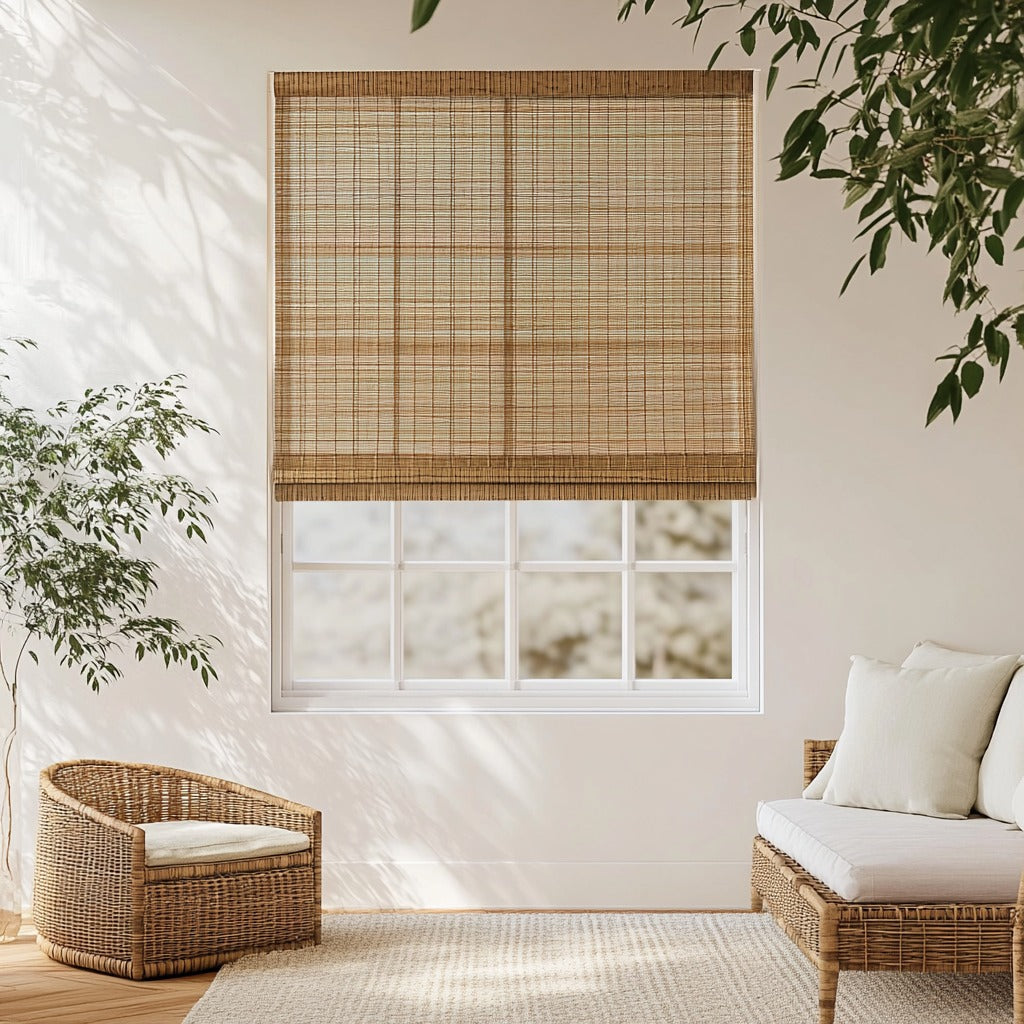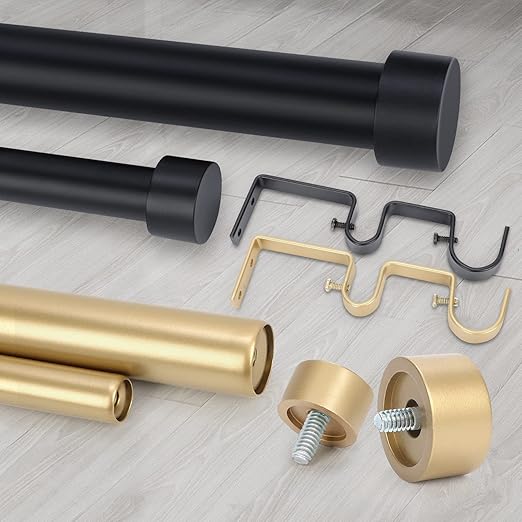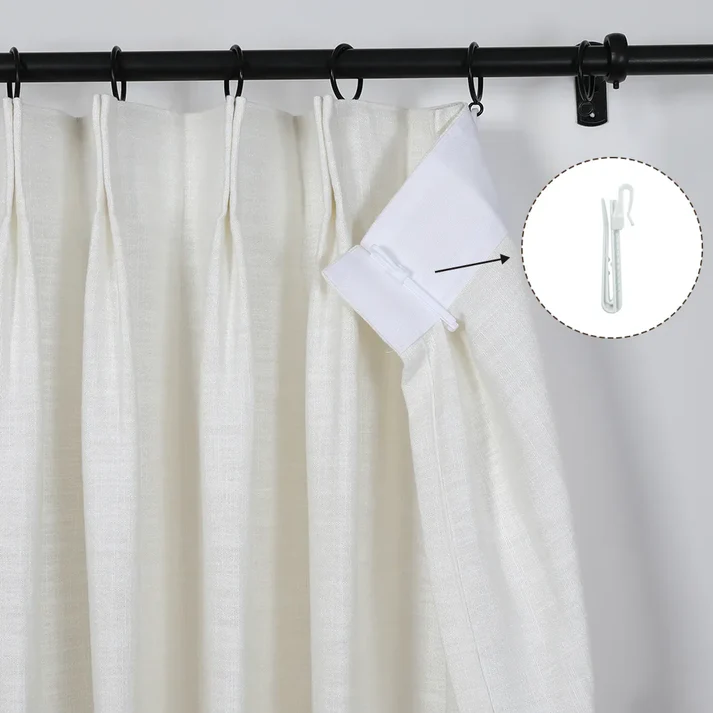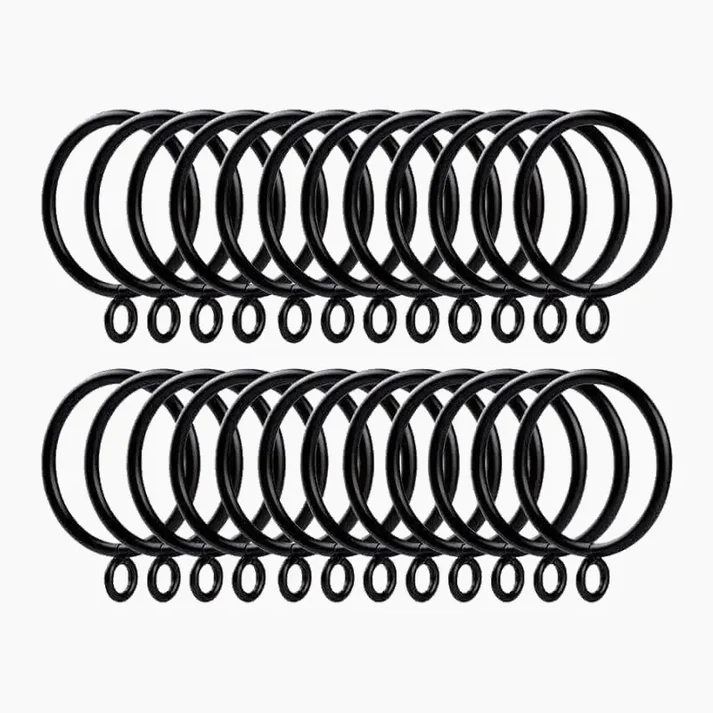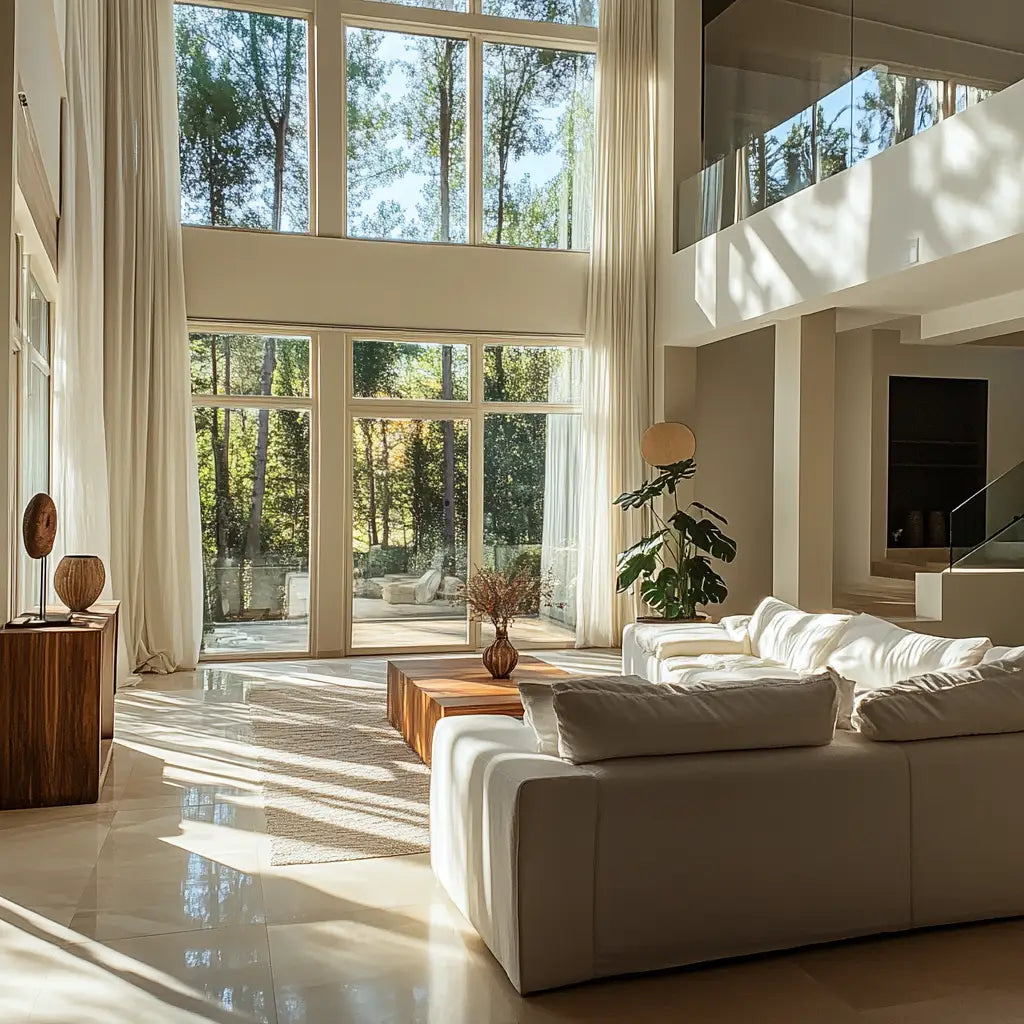
Blackout Curtains — Tested in Real Homes
I tested blackout curtains in real rooms over four weeks.
Each space—bedroom, living room, and office—gave unique data.
Light blocking, sound reduction, and thermal impact were measured.
Light Blocking Test Results
Morning sun floods my east-facing bedroom every day.
With blackout curtains drawn, light penetration nearly vanished.
A light meter showed a 96% reduction in brightness.
The darkened room created a calm atmosphere for sleep.
Even street lamps at night failed to break through.
This proved more effective than thick blinds I tested.
I specifically measured fabric layers and weave density.
The woven backing made a difference in consistency.
Edges also mattered: sealed hems blocked corner leaks.
I used the Chevron textured linen 100% blackout lining curtain pleated.
It combined a soft look with absolute light control.

Sound Insulation Measurements
I live on a busy street, so noise is constant.
Blackout curtains surprised me with their acoustic benefit.
A decibel meter measured 7–10 dB of noise reduction.
The difference was most noticeable during late-night traffic.
Curtains absorbed both engine rumble and high-pitched horns.
Television noise from an adjoining wall was softened too.
The thickness of fabric helped dampen midrange tones.
Layers trapped sound waves before they spread inside.
While not as powerful as acoustic panels, results impressed.
In my office, work calls were clearer and calmer.
Even without soundproof windows, curtains alone added comfort.

Thermal Retention & Energy Impact
Winter tests showed a steady warmth indoors overnight.
With curtains closed, temperature dropped 1.5°C less by morning.
This meant lower heating effort, especially in drafty rooms.
Summer results were equally striking during afternoon heat.
Curtains blocked direct sun, keeping interiors cooler by 2–3°C.
Air conditioning cycled less often, reducing electricity costs.
Fabric density combined with lining prevented thermal leaks.
Even small gaps at edges caused measurable differences.
Snug fitting rods and wider panels improved insulation.
My conclusion: blackout curtains are efficient thermal barriers.
They directly save energy while improving comfort across seasons.
I reviewed a full thermal-insulating blackout curtains collection.
Many styles balance décor appeal with measurable energy savings.

Fabric Quality & Durability
Daily use tested resilience of curtain fabrics over weeks.
I pulled them open and closed several times a day.
No snagging or loose stitching was observed during trial.
After machine washing on gentle cycle, colors held true.
Black remained rich, beige stayed neutral without yellowing.
The weave resisted pilling and surface distortion remarkably well.
Durability mattered because heavy curtains endure constant strain.
Pleats stayed sharp, and hems resisted fraying under tension.
Weight added presence but hardware handled it effectively.
Hand feel was another important element in evaluation.
Even thick insulated versions maintained a soft drape.

Installation Hardware & Process
Curtain hardware plays a big role in real-world use.
I tested rod brackets, screws, and pleated hook fittings.
Setup required just a drill, level, and tape measure.
Time spent per window was roughly 25–30 minutes.
Mounting brackets aligned smoothly, holding weight without strain.
Heavier fabrics demanded stronger rods for sag prevention.
Hooks attached firmly into the pleated fabric backing.
Alignment ensured curtains closed without gaps or overlaps.
Once hung, folds created elegant lines without distortion.
I explored modern blackout drapery options for living rooms.
They blend functionality with stylish finish suitable for display.
Comparison to Roller Shades / Blinds
Roller shades provided neat minimalism but lacked depth.
They reduced glare yet failed against streetlights at night.
Blackout curtains maintained stronger darkness throughout tests.
Blinds allowed airflow but let noise easily penetrate.
Sound insulation of curtains was clearly more effective.
Fabric density created an acoustic cushion blinds cannot match.
Thermal performance also favored curtains in both seasons.
Shades let heat leak around edges more readily.
Curtains with wider coverage formed better thermal seals.
Aesthetic impact was another distinction worth noting.
Curtains added softness, while blinds looked utilitarian.
Frequently Asked Questions
Do blackout curtains work in bright daylight?
Yes. In my tests, direct sunlight was cut by 95–97%.
Rooms stayed comfortably dim even at midday brightness.
Can blackout curtains reduce street noise?
They help but are not full soundproofing.
Expect a 7–10 dB reduction, enough for improved sleep.
Are blackout curtains machine washable?
Most are. Use gentle cycles and mild detergent.
Avoid high heat drying to preserve backing and color.
Which rooms benefit most from blackout curtains?
Bedrooms and home theaters gain the biggest effect.
Home offices and nurseries also improve in comfort.
How to Install Blackout Curtains in 5 Steps
Measure window width and height with a tape measure.
Mark bracket positions at least 4 inches above frame.
Drill pilot holes and secure brackets firmly with screws.
Slide rod through curtain header or attach pleated hooks.
Hang curtains, adjust folds, and check for even drape.
Random Articles
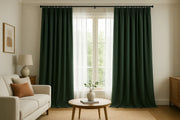
Explore custom cotton drapes for bedrooms, dining rooms, and living spaces. Elegant, washable, an...
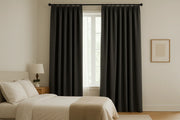
Explore blackout curtains for better sleep, sound control, and energy efficiency. See room-specif...
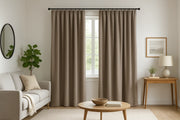
Thermal curtains tested in real homes: blackout, insulated, and velvet designs measured for comfo...
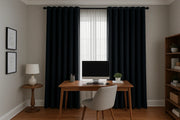
Real-world tests of home office drapes: blackout, soundproof, insulated, and stylish options meas...

